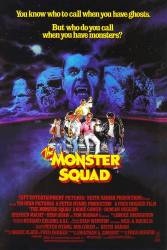
Question: At the beginning of the movie, it was stated that Van Helsing planned to use the amulet to send every monster to limbo but that him and his team blew it. How exactly did they blow it?
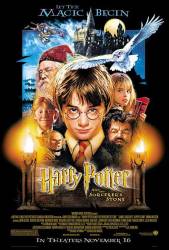
Question: I get that the DADA role is cursed because of Voldemort being denied the role when he applied for it at Hogwarts, but why does Dumbledore not let Snape take the role like he's wanted to every year? I thought Snape was a double agent (he spies on the Death Eaters and Voldemort for Dumbledore, and he pretends to be on Voldemort's side too), so unless Voldemort decides that he wants to get rid of him for being in the role, he's okay to take it on provided he's given it, and yet every year, Dumbledore turns down his application. Is it because Snape's too involved in Voldemort's side of things or some other reason? I hope I explained it well.
Chosen answer: There are several reasons. First, the position is cursed, so there is little reason to give Snape the job when he will not last any longer than all the previous instructors. If Snape did become the DADA instructor, something could happen to him that could result in his being harmed, having to leave Hogwarts, or be otherwise incapacitated in some way; that would render him useless to Dumbledore as a double agent. Also, Dumbledore trusts Snape, but putting him in an environment where he is teaching about dark magic on a daily basis would be too tempting and emotionally compromising to someone who had been so easily seduced by the dark side. He could possibly relapse. It would be like having a recovering alcoholic work as a bartender. Of course, he does eventually become the DADA instructor, and lasted no longer than his predecessors.
In the movies it is never mentioned that DADA role was cursed by Voldemort.
This is true; though it doesn't say it's not either. With trying to fit 7 long books and years worth of pages of HP information in 2 and a half hours; as long as the movie doesn't say it's not cursed, with our knowledge, there is no problem with reporting that it is. Even directors of non-book movies do this all the time; leave background information out that helps explain things they just didn't have time so they explained it behind the scenes.

Question: Why did Queen Bavmorda need a ritual to get rid of the child? Why didn't she simply kill the baby on the spot?

Question: Are Professor Kirke and Mrs. MacReady both aware of what the wardrobe really is and what it can do?
Answer: Spoiler alert: this gives some important plot twists away. Sometimes a bit of unresolved mystery improves a story, and I think this is the case here. But the book partly answers your questions. At the end of the last chapter it is shown that Mrs MacReady thinks the wardrobe is just a piece of furniture. She knows nothing about Narnia. But Professor Kirke amazes Peter, Edmund, Susan and Lucy by expressing familiarity with Narnia and explaining that a wardrobe might well be a portal into Narnia. If C S Lewis had not written any more books after completing "The Lion The Witch And The Wardrobe" Professor Kirke's knowledge of Narnia would probably have been an unresolved mystery. But C S Lewis later wrote "The Magician's Nephew" which tells how Professor Kirke visited Narnia as a boy. The final chapter of this book says he took an apple back with him, which he planted in his garden. It grew into a tree, was cut down and made into the wardrobe. So Professor Kirke was not consciously aware of what the wardrobe could do, but with hindsight, he realised that he had set up a chain of events that caused the children to discover Narnia.
Answer: While Professor Kirke is aware of the existence of Narnia, as he was there when it was created, he doesn't appear to be aware that the wardrobe can act as a portal (although he may suspect that it has unusual properties, as the tree from which the wood came to create it grew from a Narnian apple). Mrs MacReady doesn't know.
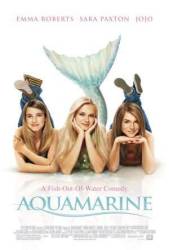
Question: Before Aquamarine showed up, Claire's grandmother told the girls that there was going to be a storm. Later, the girls learn that the storm that night was caused by Aquamarine's father getting angry. How did Claire's grandmother know that there was going to be one, unless she knows Aquamarine's father?
Answer: Most likely, Aquamarine and her father had argued multiple times, about her not wanting marry the boy that he chose for her. She was going against tradition. Claire's grandmother probably saw storm signs caused by an earlier argument. Then Aquamarine's father got angry enough to make the big storm.
Answer: Because caused by mythical sea-dwellers or not, storms always have telltale signs beforehand, like darkening skies, or the wind changing temperature and strength.
This does not answer the question in the context of the movie. A fantasy situation is happening in a fantasy movie. The realistic answer is not necessarily the correct one.
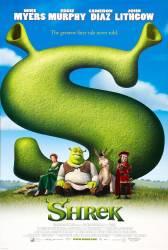
Question: In theatrical trailers, when the dwarves put Snow White on Shrek's table, he says "Dead girl off the table." In the real movie, however, "girl" becomes "broad", according to the subtitles. Is there a reason why?
Chosen answer: This is most likely because "broad" isn't too nice of a word, and children of any age could watch the trailer. Parents wouldn't want their children to copy inapropriate language, obviously.
Answer: Broad is just a slang word meaning Woman. It was historically a bad word, but now it's not.

Question: If I understand correctly, Lily Potter's "love" protection no longer keeps Harry safe after the graveyard ritual, due to Voldemort getting some of Harry's blood. Why, then, doesn't Voldemort attack Harry at the Dursleys' house in the summer?
Answer: Voldemort's spell undid the Sacrificial Protection that Lily bestowed on Harry, but the Bond of Blood is a separate protection bestowed if the person sacrificing their lives is a relative. THAT spell is still renewed as long as Harry keeps returning to the Dursleys until age seventeen. Voldemort has removed one protection, but a second is still in place.

Question: If imprinting is possible for werewolves then why didn't Jacob do it to Bella? Mad Magazine pointed this out as he does this to her daughter, kind of creepy it was.
Answer: Imprinting is an involuntary mechanism. The shape-shifter can't voluntarily imprint on anybody. Jacob tried to imprint on Bella but was unable to do so and began going around looking for other girls to imprint on but, is unable to do it of his own free will.
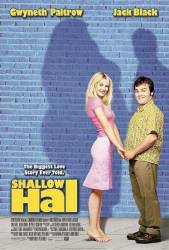
Question: In the scene where Hal, Rosemary, the cripled friend, and Nurse "Sourpuss" go out of town, Hal and his friend got to buy snacks leaving Rosemary and "Sourpuss" to talk. There is a scene where thy cut to the front of the car and Nurse "Sourpuss" is now good looking. So is that her real look and Hal only sees her as old and ugly?
Chosen answer: Yes. Just as Hal sees many unattractive and/or overweight women to be thin and beautiful due to their true personalities, he sees Nurse "Sourpuss" - who is a beautiful woman - to be old and ugly due to hers.
Answer: At that point Hal and his friend had already turned their backs and went to the store so Hal was not even looking at her.

Question: Amy is almost drowned in the muddy water. After Russ saves her by artificial respiration, Nick asks him where he learnt artificial respiration. "French class." Russ answers. At the end of the movie, Nick at the table shouts, "I get it! French class!" So what does French Class mean?

Question: When Rosemary gets into the Castavets right at the end, she walks past a man, and then the man says something. She then replies "Be quiet, you're still in [some location]" What was that about...?
Chosen answer: Roman Castavet is trying to get Rosemary's attention, and she says "Be quiet, you're in Dubrovnik, I can't hear you". That was in reference to the fact that Roman and Minnie were supposed to have gone to Majorca or Dubrovnik after she found out that Roman was supposedly dying (which was just a lie Rosemary was told so she wouldn't suspect them when her baby was taken). Roman and Minnie got in a cab and pretended to go to the airport, but never left town.

Question: When Superman went back in time to save Lois, doesn't that mean that the people that he had originally saved are now doomed to die?
Chosen answer: No. Because the version of him *before* he time-traveled is still out doing those things. The REAL question is, what happens to that Superman, seeing as Lois no longer dies and he has no reason to travel back in time.
Answer: There are generally two methods of time travel. Skip vs Slide. When you slide through time, you are in essence rewinding or fast forwarding a tape. Time will accelerate to the desired moment. This method, the traveler will witness the rewind and will only allow one of them to exist. When skipping, you are plucking yourself from the time stream and placing yourself in the desired moment. This method, travel is instantaneous and can allow for multiples of the traveler to exist at once. Superman rewound time. He used the slide method and went directly to Lois after doing so. This means those he previously saved...died after his reversal.
Or he could have used the skip method. Like you said, it enables a traveler to pluck themself from the time stream and placing them at the desired moment allowing for two Supermen to be able to prevent both missiles from reaching their destinations.
He couldn't have used the skip method if he rewound time.
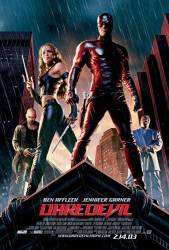
Question: What is the name of the song that comes on when Ben Affleck wakes up and turns on the radio?
Answer: Hang on, by Seether.

Question: When Woody is trying to explain to Jesse, Stinky Pete and Bullseye why he was at the yard sale before Al finds him, Stinky Pete interrupts him. Why?
Answer: As we learn later, Stinky Pete has his own agenda. He's seizing on the fact that Woody was being sold as a way to convince Woody to go to the museum.
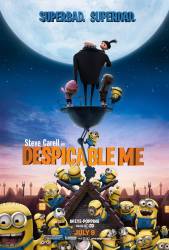
Question: What does Gru say to Miss Hattie in Spanish?
Chosen answer: "You have the face of a donkey."
Answer: "You have a face like a donkey."
Answer: What he says is "You look like an ass."

Question: Wouldn't David & Jennifer's mom be worried about the sudden disappearance of her daughter, seeing as how Jennifer stayed behind in Pleasantville rather than returning to the "real world"?
Answer: We don't see much of the "real world" after David returns other than his conversation with his mother. I am sure in time she would have been worried but there seem to be many unanswered questions which might make it not so simple.
Considering that a couple of days in Pleasantville turned out to be just an hour in the real world, it's possible Jennifer could spend 3-4 years in uni and cone back with it being just a weekend in the real world. David could just make up something in that period she's gone.
Actually if a couple of days is just an hour than 3-4 years is more than 2 weeks.
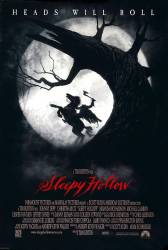
Question: When going to kill the Killians, how did the Horseman know that Thomas was hiding under the floor? Thomas stayed completely still and didn't make a sound.
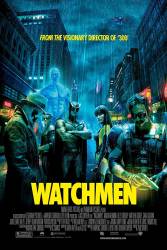
Question: I don't quite understand why Dr. Manhattan had to kill Rorschach. That is, I don't quite get why that was the only solution. Rorschach was a valuable member of the Watchmen, and in the type of world they were in (chaos, corruption, murder, etc) one would think that they would want to keep as many of themselves banded together as possible. Couldn't some sort of negotiation or compromise have been reached/agreed to by Rorschach instead of him being killed?
Answer: He has spent years as a costumed vigilante despite the fact that it was illegal. He has a very strict idea of what is right ("never compromise") and has proven himself incapable of doing otherwise. So no, there was no real chance of negotiating with him - Rorschach himself made it clear he'd have to die if they wanted his silence.
Death was not the only choice. Doc M could easily have teleported/banished Rorschach to Mars/anywhere secluded in an oxygen bubble. He could have spared his life and just made him mute or manipulate his brain chemistry/atoms to remove the memory of what happened. The point is Doc M is all powerful and could manipulate matter at his whim; death was just a plot device creating a chance of an emotive martyrdom/sacrificial ending.
Ethically speaking, exiling him to Mars or erasing his memory of the event can be considered just as cruel as killing him, because then his agency is being taken away from him. Rorshach's malcontent with the situation poses a problem for the other heroes, and since Dr. Manhattan isn't willing to let him tell the truth of what happened, he obliges Rorschach's demand that he kill him instead.

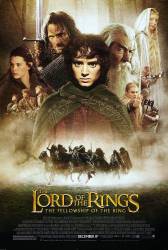
Answer: It is shown that Dracula's servants were successful in protecting their master. Dracula escapes while Van Helsing himself is sucked into limbo.
BaconIsMyBFF